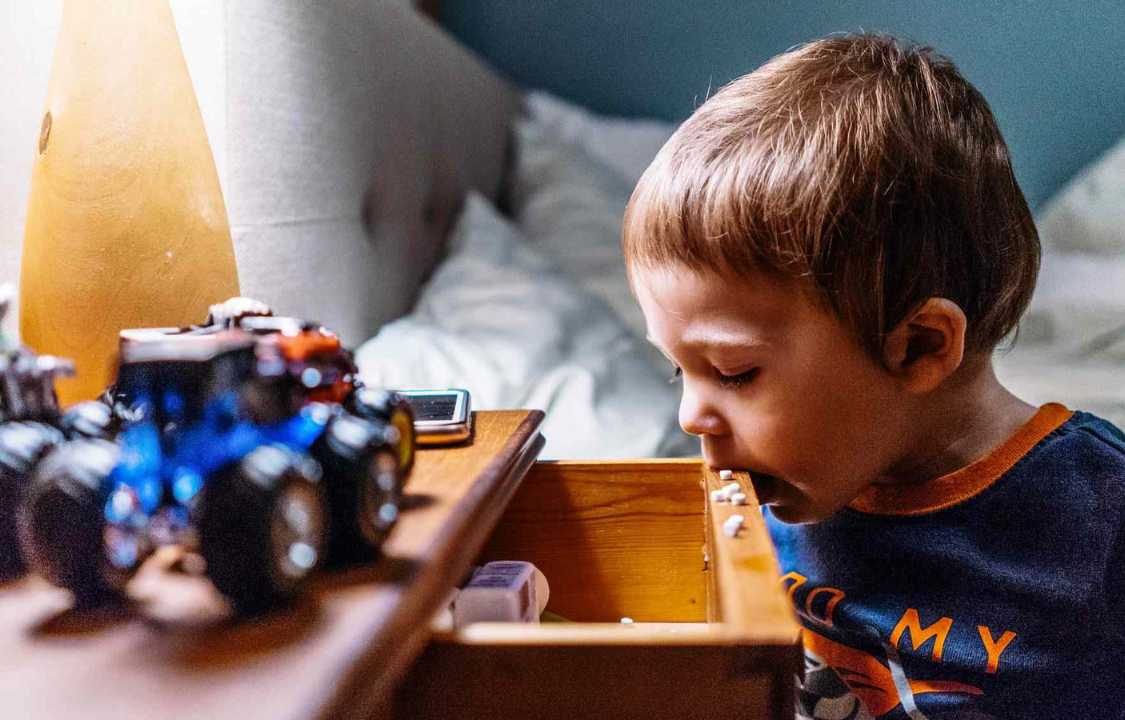Symptoms
Melatonin Overdose Symptoms in Children
Most cases were accidental and among children 5 years old or younger.
In recent years, poison control centers across the United States have witnessed a concerning surge in cases of children ingesting melatonin, both intentionally and accidentally. Melatonin, a hormone naturally produced by the body to regulate the sleep-wake cycle, is also available over-the-counter as a sleep aid for both adults and children. While melatonin can be a valuable tool for promoting healthy sleep, its misuse or accidental ingestion by children has raised serious health concerns. This article explores the reasons behind the increase in pediatric melatonin ingestions, the symptoms of melatonin poisoning in children, and crucial preventive measures for parents and caregivers.
The Alarming Increase in Pediatric Melatonin Ingestions
Recent research conducted by the Centers for Disease Control and Prevention (CDC) has unveiled a startling trend: between 2012 and 2021, there was a staggering 530% increase in pediatric melatonin ingestions reported to the American Association of Poison Control Centers’ National Poison Data System. During this period, a total of 260,435 cases were recorded, with the majority (94.3%) being accidental ingestions by children aged 5 years or younger.
This spike in melatonin ingestions aligns with the overall rise in melatonin use among the U.S. population. Melatonin, available in various forms such as tablets, capsules, liquids, and gummies, has become a readily accessible and cost-effective over-the-counter sleep aid. However, its increased availability has also contributed to an uptick in ingestions, including those involving children.
Symptoms of Melatonin Poisoning in Children
While the majority of children who ingest melatonin do not exhibit any symptoms (82.8%), those who do may experience a range of effects primarily involving the gastrointestinal, cardiovascular, or central nervous systems. Common symptoms include increased drowsiness and a desire to sleep, with vomiting occasionally reported.
However, it is vital to recognize that in some cases, melatonin poisoning can lead to more severe outcomes. Approximately 1.6% of children who ingested melatonin—equivalent to 4,555 children—experienced serious consequences. In these instances, melatonin can slow breathing and lung function, disrupt metabolic processes, and cause significant harm.
Severe symptoms that warrant immediate medical attention include repeated vomiting, breathing difficulties, and slurred speech. In rare cases, children may require mechanical ventilation to assist with breathing.
Safe Usage of Melatonin in Children
Melatonin can be safely used in children, but it must be administered with caution and in appropriate dosages. Typically, melatonin doses ranging from 1 to 3 milligrams are considered safe for children. It is crucial for parents and caregivers to consult with a pediatrician before introducing melatonin or any other supplement to a child’s regimen.
One critical issue concerning melatonin and other dietary supplements is the lack of rigorous regulation by the FDA. This regulatory gap can result in variations in product composition and quality, including unexpected levels of melatonin. Research has uncovered instances where melatonin supplements contained up to 478% more melatonin than indicated on the label, with chewable formulations being particularly inconsistent.
Moreover, some melatonin products may contain serotonin, a breakdown product of melatonin, which can elevate the risk of serotonin toxicity in children. In cases of concern or potential overdose, it is advisable to contact the local Poison Control Center for guidance.
Factors Contributing to Rising Melatonin Ingestions
Several factors have contributed to the increase in pediatric melatonin ingestions. The COVID-19 pandemic, which led to more time spent at home, may have played a role. Parents under increased stress and seeking better sleep may have purchased melatonin, inadvertently making it more accessible to children.
Gummy and chewable forms of melatonin have been identified as potential culprits in pediatric ingestions. These formulations often resemble candy, making it challenging for children to distinguish them from treats. Additionally, there is a perception of harmlessness surrounding supplements like melatonin, leading some individuals to administer doses exceeding recommendations.
Preventing Melatonin Poisoning in Children
To safeguard children from melatonin poisoning and accidental ingestions, several preventive measures must be taken:
1. Safe Storage: All medications, including melatonin, should be stored out of reach of children. If a product does not come in child-resistant packaging, it should be transferred to a secure container that children cannot access.
2. Education: Parents and caregivers should be informed about the potential dangers of melatonin ingestions in children and the importance of proper storage.
3. Consultation with Healthcare Providers: Before introducing melatonin or any supplement to a child’s routine, consultation with a pediatrician is essential. Healthcare providers can provide guidance on suitable dosages and usage.
4. Awareness of Product Variability: Be aware of the variability in melatonin products, particularly in chewable or gummy forms. Carefully read labels and choose reputable brands.
5. Poison Control Center Contact: In the event of suspected melatonin poisoning or overdose, contact the local Poison Control Center for immediate guidance and assistance.
Conclusion
The escalating and concerning trend of pediatric melatonin ingestions demands not only increased awareness but also comprehensive education and the promotion of responsible usage. While melatonin can undoubtedly be a valuable aid for promoting healthy sleep in both adults and children, its widespread accessibility and the considerable variations in product quality on the market necessitate a high degree of caution.
In order to safeguard our children’s health, it is imperative that parents and caregivers take proactive steps to ensure the safe storage of melatonin products, consult healthcare providers for expert guidance, and remain ever-vigilant about potential variations in product quality. These measures can significantly reduce the risks associated with melatonin ingestion by children.
Furthermore, it is incumbent upon public health organizations and initiatives to prioritize raising awareness of this pressing issue and actively promoting preventive measures. By disseminating information about the potential risks and advocating responsible melatonin usage, we can collectively work towards eliminating the threat posed by pediatric melatonin ingestions and, in turn, enhance the well-being of our younger generations.

